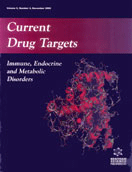Abstract
Oxidative tissue damage in vivo is a complex phenomenon involving many factors and pathways. Proteins are particularly attractive targets for oxidative products analysis in order to understand better the physiopathology of human diseases. Protein modifications serve as footprints of biochemical processes. They also help ascertain the mechanism of anti-oxidative action of medical drugs and further search for novel agents that inhibit efficiently oxidative protein damage. Several drugs already used clinically interfere with oxidative protein damage through different mechanisms characteristic of their chemical structure. This review delineates the oxidative protein modifications existing in diabetic nephropathy and their regression in association with renoprotective anti-hypertensive agents. Our hypothetical approach will require further testing. Nevertheless, the insights gained on the biochemistry of protein modifications open new avenues towards the development of new classes of renoprotective agents for diabetic nephropathy.
Keywords: oxidative stress, carbonyl stress, protein modification, advanced glycation end product, renoprotection, antihypertensive agent, metabolic derangement















